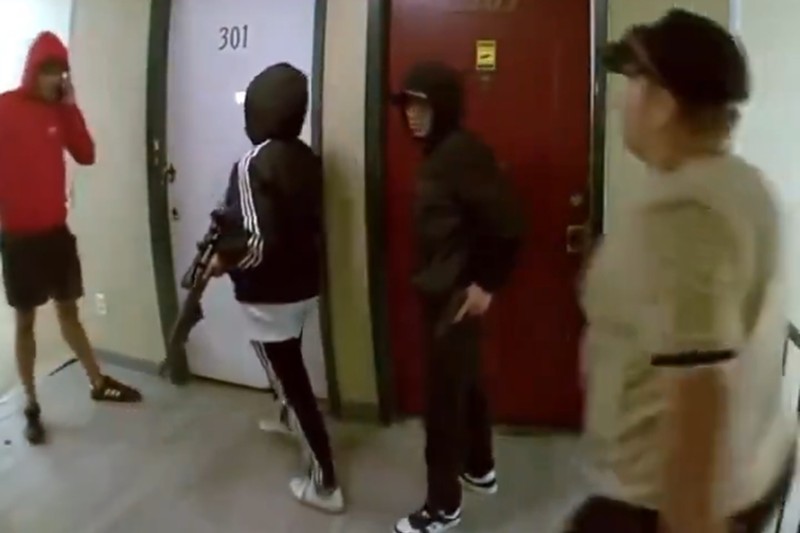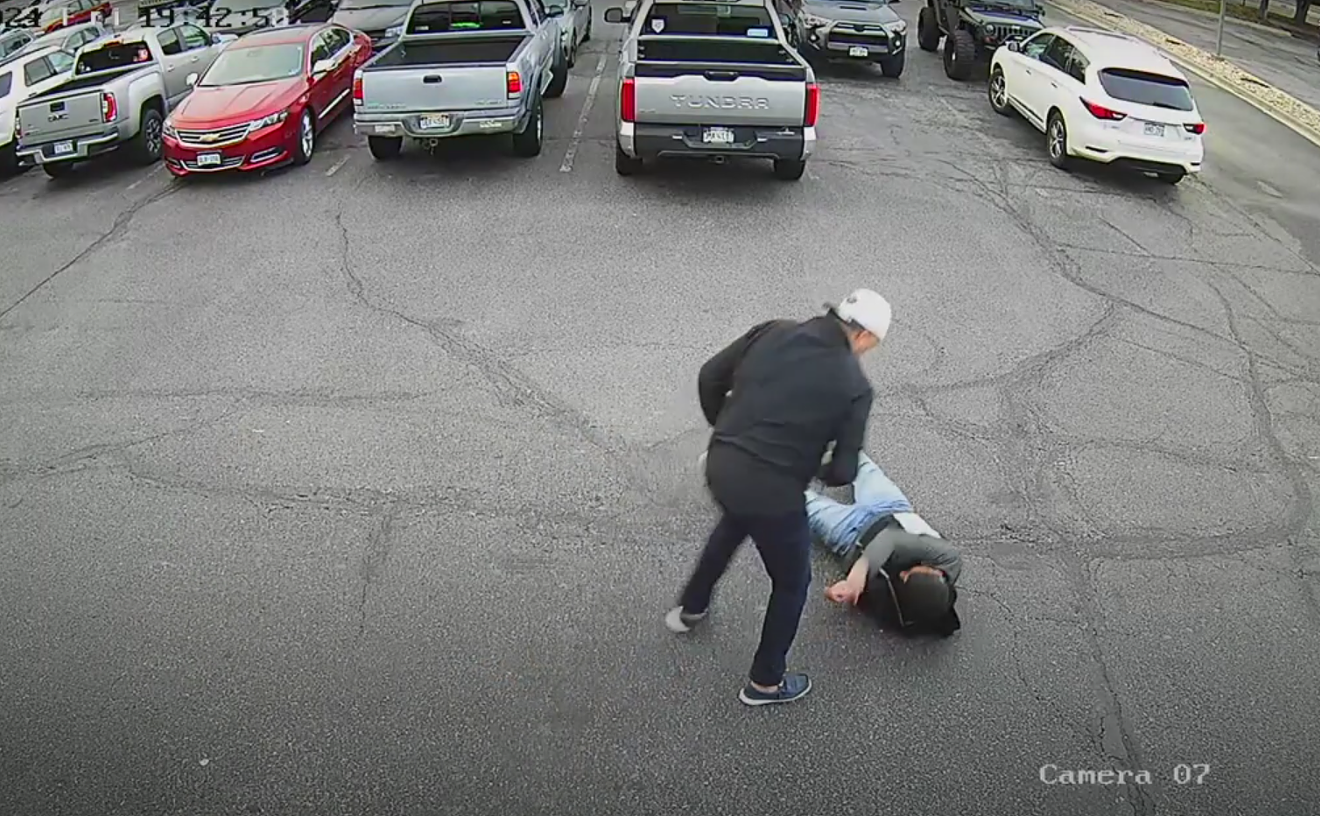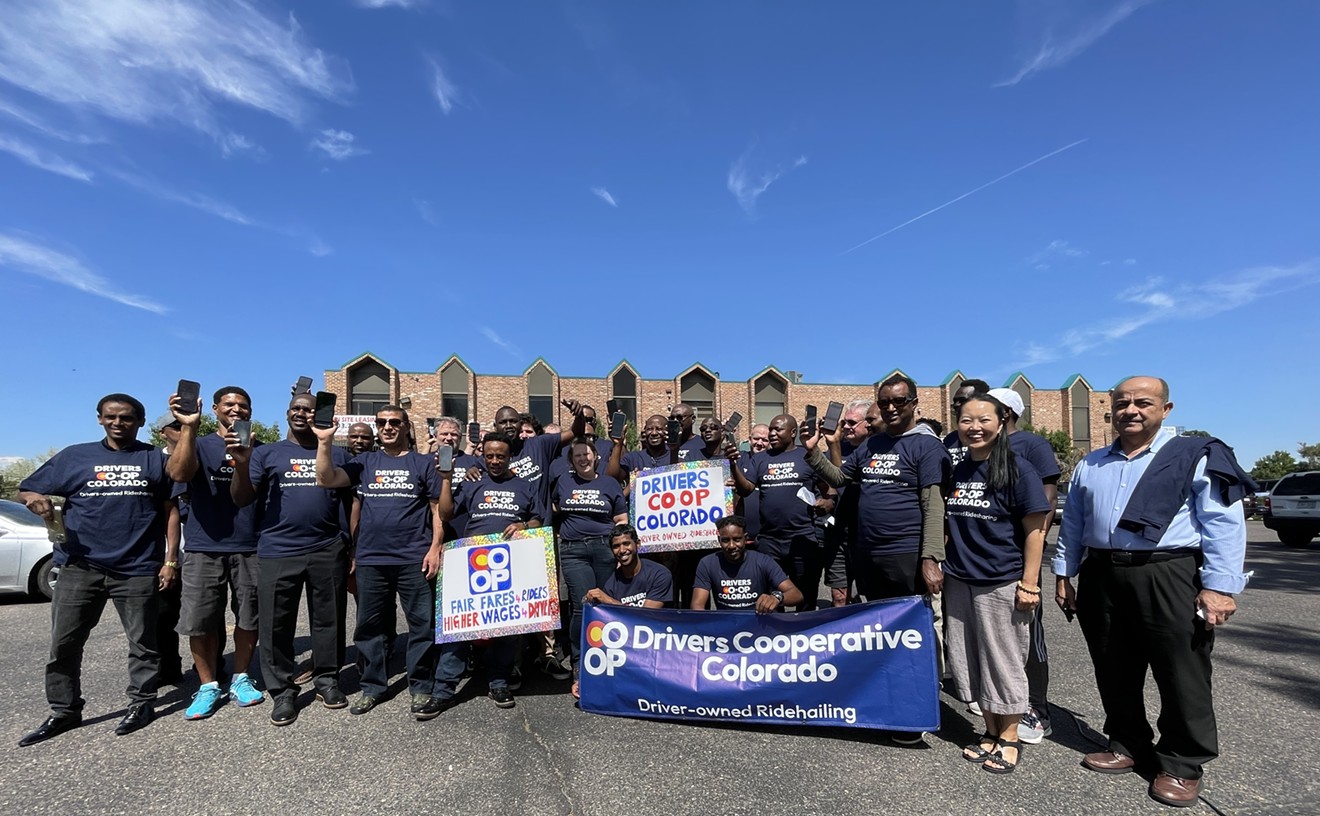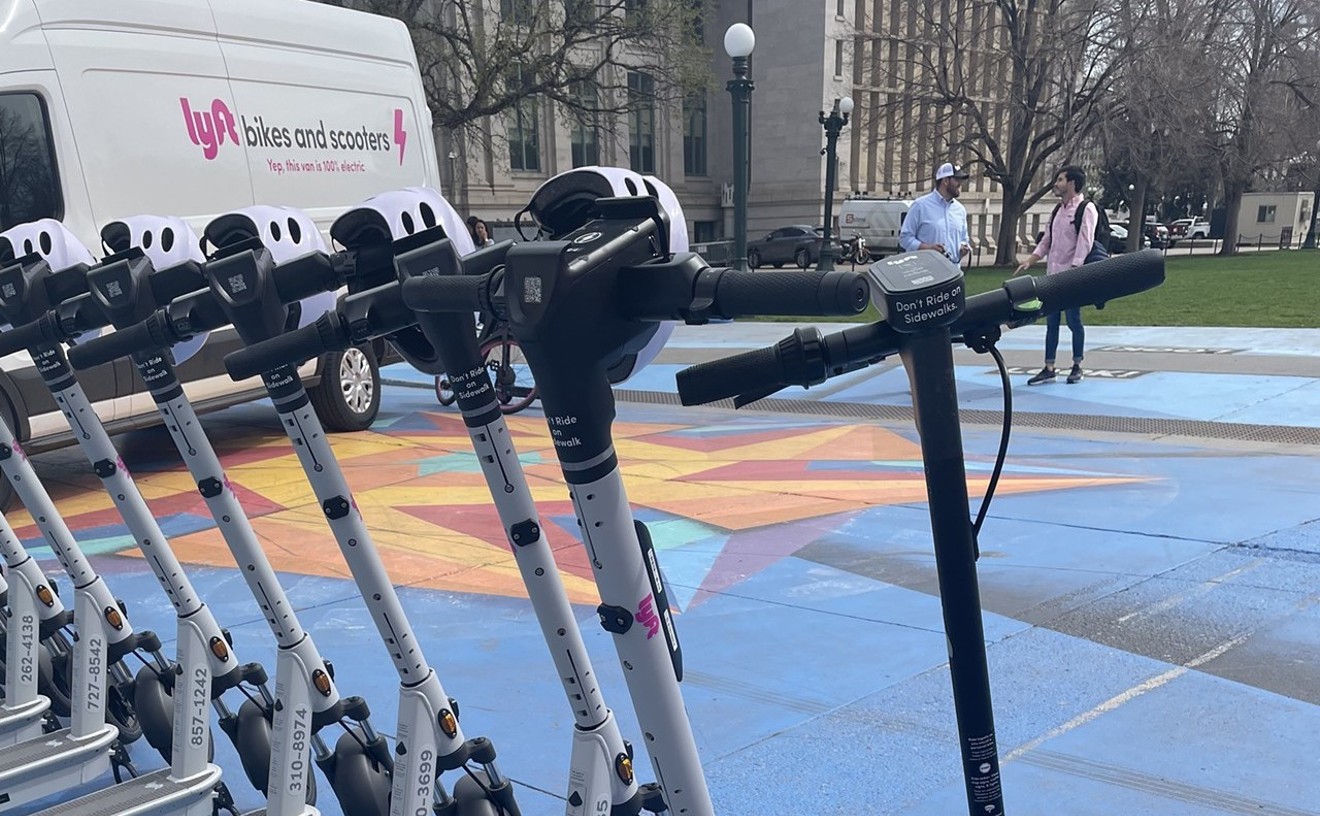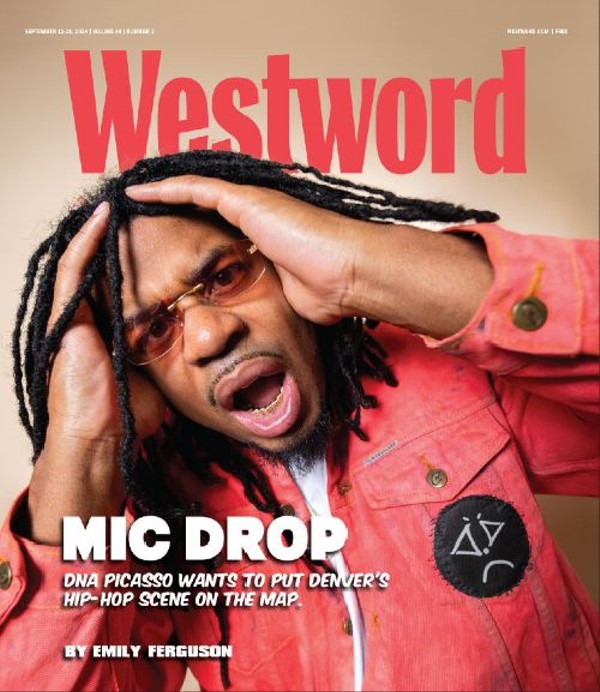"It's an election year, and migration is a prominent theme, a prominent issue voters are looking at," says LaSusa, who writes about organized crime in the Americas for online media outlet InSight Crime. "There's a lot of attention on people who are migrating to the United States. I think that's combined with an increased focus on Venezuela. ... It's not really surprising to me that people would jump to conclusions."
However, he doubts that Tren de Aragua (TdA) ever took over Aurora apartment complexes or the city, as some politicians and members of the media have been saying for about a month.
InSight Crime has been covering TdA since it formed about a decade ago. LaSusa, who considers himself "an expert in organized crime," has written about the gang, from its origin to TdA's current activity.
Tren de Aragua started as a gang in the Tocorón prison in Aragua, Venezuela, in the mid-2010s, at a time when the government was losing control of its prisons.
"This gave the gangs, including Tren de Aragua, the space to become more powerful behind bars," LaSusa says. "Over the years, they were able to use that power to grow their criminal portfolio and project their activities beyond the walls of the prison."
According to LaSusa, TdA started making money mostly through small-scale drug and human smuggling operations and by extorting people with threats of violence and kidnapping. The gang then found profitable opportunities by exploiting the spike in migration from Venezuela during political repression and economic strife in the 2010s.
"The gang already had a hold on the smuggling routes, and they were able to take advantage of that and earn money from smuggling migrants and also from extorting them and exploiting them," LaSusa says. "Trafficking them for the purpose of labor exploitation, sexual exploitation."
"This gave the gangs, including Tren de Aragua, the space to become more powerful behind bars," LaSusa says. "Over the years, they were able to use that power to grow their criminal portfolio and project their activities beyond the walls of the prison."
The gang's name, which translates to "Aragua Train," likely relates to a labor union that worked on a railway project in the state that was never finished, according to LaSusa. It's unknown why the gang took the name.
According to LaSusa, TdA started making money mostly through small-scale drug and human smuggling operations and by extorting people with threats of violence and kidnapping. The gang then found profitable opportunities by exploiting the spike in migration from Venezuela during political repression and economic strife in the 2010s.
"The gang already had a hold on the smuggling routes, and they were able to take advantage of that and earn money from smuggling migrants and also from extorting them and exploiting them," LaSusa says. "Trafficking them for the purpose of labor exploitation, sexual exploitation."
During the past month, Aurora has made its way into national headlines, popular alt-right social media accounts, and former president Donald Trump's campaign trail because of claims that TdA has taken over apartment complexes in Aurora, and even the entire city.
That claim came in early August from CBZ Management, a Brooklyn-based company responsible for apartment properties across Colorado and the Denver area. The company told media that members of the gang had threatened its employees at an apartment complex at 1568 Nome Street, which led to the property falling into neglect, its eventual closure by the city and a couple hundred residents being evicted. Residents at other CBZ Colorado properties have complained of similarly bad living conditions.
The gang has been linked to a jewelry heist in Denver in June and, according to the Denver Police Department, was believed by Homeland Security intelligence to have issued a "green light" to shoot DPD officers who interfered with its gang activity.
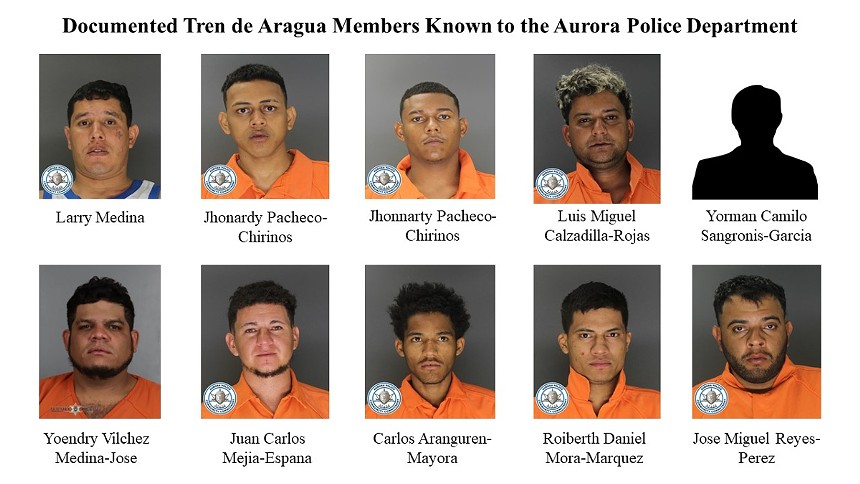
The Aurora Police Department reports that it has linked ten people to TdA and arrested eight of them.
Courtesy of the Aurora Police Department
A handful of elected officials in Aurora supported CBZ's claim. After a video of five armed men walking through a CBZ property went viral in late August and generated national headlines about Aurora, Councilwoman Danielle Jurinsky, the head of the Council Public Safety Committee, backed up the story of a TdA takeover on national TV and social media. After initially pushing back against the notion and even referring to CBZ's ownership as "slumlords," Aurora Mayor Mike Coffman has also repeated the claim that properties were taken over by TdA.
Texas Congressman Tony Gonzalez called TdA "MS-13 on steroids." Jurinsky said the gang is like "MS-13, but worse" during a live audio conversation on X on September 3.
But LaSusa says comparing different criminal organizations is difficult because each one has a different history and way of working. "I don't know what the basis is for those kinds of comparisons besides that both are gangs associated with Latin American countries," he adds.
But LaSusa says comparing different criminal organizations is difficult because each one has a different history and way of working. "I don't know what the basis is for those kinds of comparisons besides that both are gangs associated with Latin American countries," he adds.
Aurora police say they're able to confirm that suspects have ties with TdA by working with state and federal law enforcement partners, but LaSusa cautions that, unlike MS-13 or the Crips and the Bloods, members of TdA don't consistently use tattoos, colors or symbols across the gang to identify themselves.
"That kind of thing doesn't really exist in a consistent way across Tren de Aragua," he says. "My big question — and it has been one that I have not been able to get a good answer on — is how authorities are identifying these folks."
LaSusa says TdA's lack of known identification symbols makes it hard to reliably count how many members of the gang exist internationally. However, TdA does have a known international presence, mainly in the South American countries of Chile, Peru and Colombia, he notes.
The Venezuelan government also doesn't share information with the United States that could help local law enforcement confirm ties to TdA, according to LaSusa.
"It's not like you arrest somebody, you think they might be Tren de Aragua, so you call Venezuela, [and ask] 'Do you know this guy as a Tren de Aragua member? Was he TdA when he was in Venezuela?'" he says. "That kind of communication doesn't exist."
Another problem with identifying TdA: impostors claiming to be members of the gang for the sake of extortion. While crimes like drug smuggling require a network of suppliers and traffickers, extorting people only requires threats of violence and fear, LaSusa points out, so criminals across different countries will claim to be members of TdA to make threats more frightening.
"There's not a very concrete way of identifying these folks," LaSusa explains. "So a person might say, 'This person that extorted me told me they were from Tren de Aragua,' but again, one thing we've seen throughout South America where this gang has shown up — and even where it hasn't — is this phenomenon of impostors."
More so than with other gangs, impostors like to claim ties to TdA when extorting because they know TdA members don't have identifying features and the gang has international recognition.
"We've seen it, particularly with Tren de Aragua, because it's so prominent in the media," LaSusa says. "People with no real affiliation with the gang will claim, 'I'm here with Tren de Aragua, and I'm going to extort you.'"
According to LaSusa, "That may be happening here" in Colorado and in other parts of the U.S.
"Folks may be assuming the name of Tren de Aragua. Victims may be assuming folks who are victimizing them are Tren de Aragua," he says.
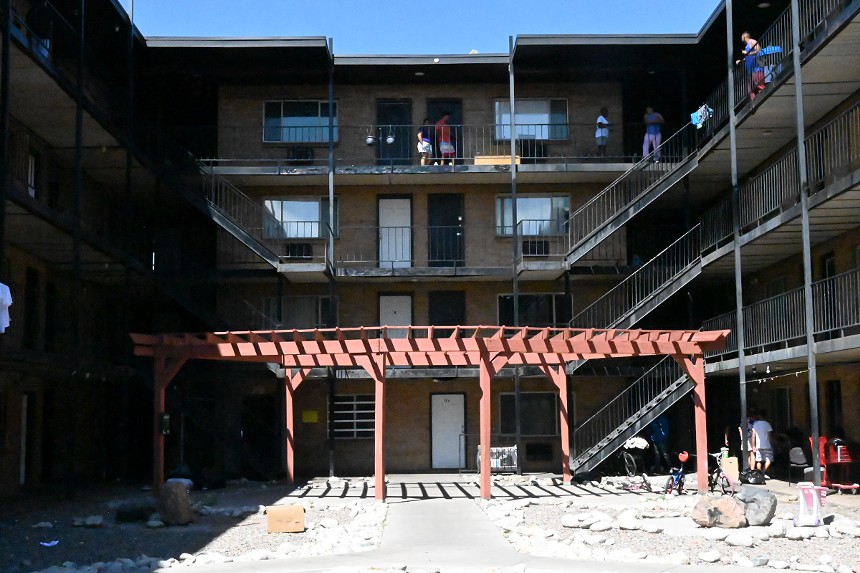
Aurora Police have disputed claims of Venezuelan gangs taking over apartments in Aurora since the beginning of August, when the owner of an apartment complex with code violations defended himself by claiming that members of Tren de Aragua had threatened him and his employees.
Bennito L. Kelty
Christopher Sanchez, a Venezuelan resident of the Edge, says that since that video gained national attention, he feels like the media has been calling every Venezuelan criminal a TdA member.
"Here, they implicate everyone. Whichever thief you see, it's Tren de Aragua," Sanchez says. "They exist, but they're a minority that are in other parts."
Sanchez's neighbor and friend Jefferson Medina, who is also Venezuelan, knew about TdA when he lived in Venezuela, but says he doubts the gang has a presence in Aurora because the United States has stricter laws than other Latin American countries.
"I doubt it, I doubt it," he says. "The idea that they're in Aurora or in Colorado, I doubt it because of the modus operandi of the people here, because of the laws of this country, which are stricter than the laws in other countries. I don't think I would really want to come here and start causing trouble."
"The only gangs here are the cockroaches," quips Moises Didenot, another Venezuelan resident of the Edge. But he blames reporters and the media for blowing the gang rumors out of proportion. He believes neither the police nor Aurora's politicians are to blame for spreading the TdA claims. "What can they do?" Didenot says.
"The ones who are saying there are gangs, it's pretty much the reporters," Didenot says. "The journalists are the ones saying there are gangs. The police chief even came here and said there are no gangs."
Other residents at the Edge feel the same way, refusing to talk to media. Several declined a request for an interview with Westword because they said media outlets had edited photos to add tattoos and guns onto residents or manipulated translations and quotes to back up the claims of gang activity.
"Look, there's no interview here, because other things come out that don't have to come out — on TikTok," said one Venezuelan woman at the Edge. "They post on all the social media channels, and what they say is a person was talking bad about the group or that one is with Tren de Aragua. So now the people here don't want to talk to journalists."
For about a year, TdA has been "in a state of disarray," LaSusa says. In September 2023, the Venezuelan government raided Tocorón prison, where TdA was still headquartered, "in response to the pressure they were receiving from South American countries that were actually seeing Tren de Aragua cells pop up."
The leaders of TdA hid after the raid, and LaSusa says that their whereabouts are unknown. Larry Amaury Álvarez Núñez, a key leader known by the alias "Larry Changa," was arrested in July in Colombia, however.
"It, again, seems very unlikely given the disarray of the leadership that the leadership of the gang would be directing the activities of any gang members who may be present in the U.S.," LaSusa says. "With the panic around this gang, I think it's important not to criminalize an entire community."
Coffman and Jurinsky have started to back off claims of gang takeovers in Aurora, issuing a joint statement with the city police department on September 11 to "clear the record." According to the statement, the police have arrested ten people with connections to TdA, including two people charged for attempted murder related to the threats against CBZ Management employees.
"TdA has not 'taken over' the city. The overstated claims fueled by social media and through select news organizations are simply not true," part of the statement reads. "The existence of this criminal element is a regional issue. Just recently, arrests have also been made in Denver and Arapahoe County. For this reason, a special task force was established in collaboration with Aurora and other local, state, and federal partners."

